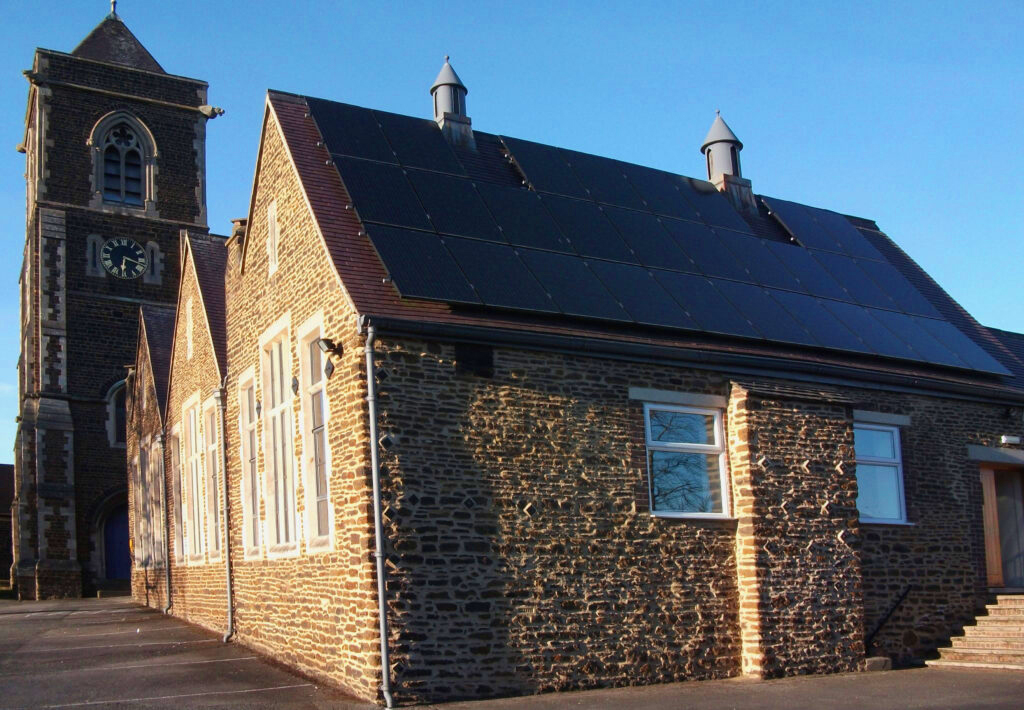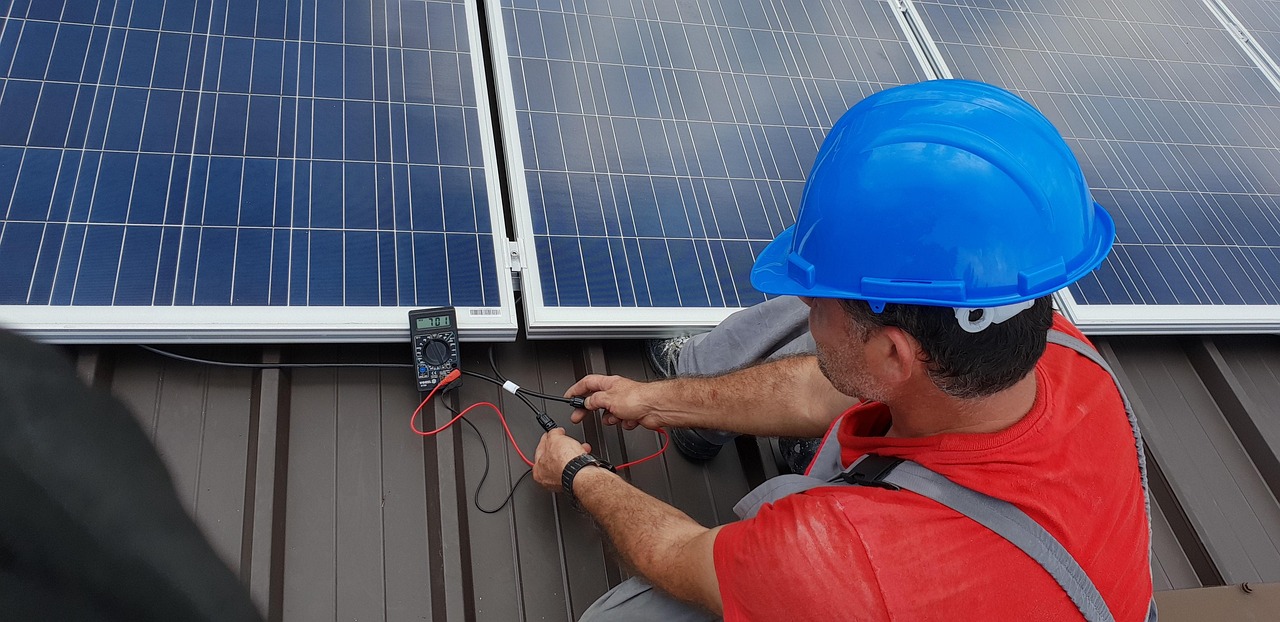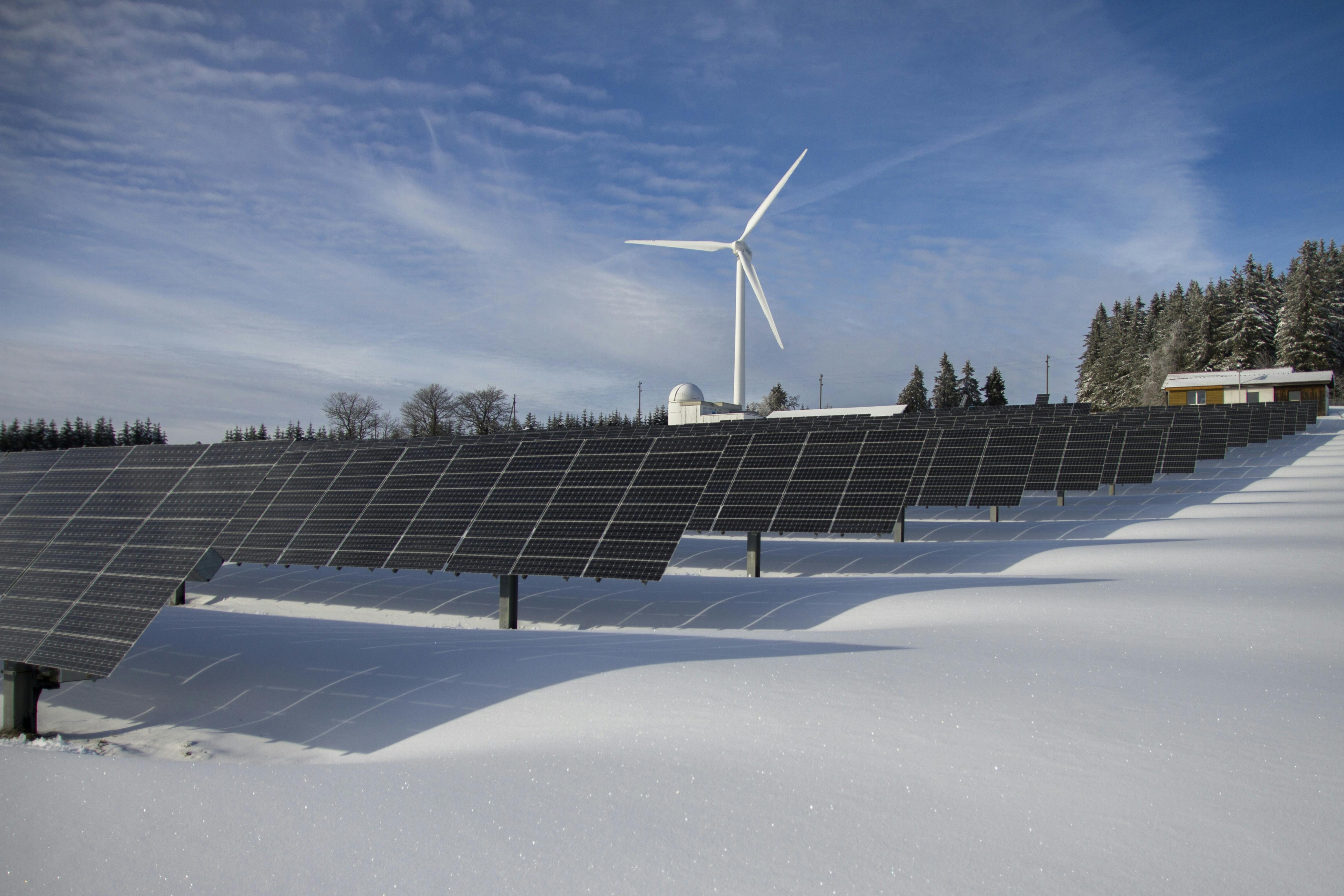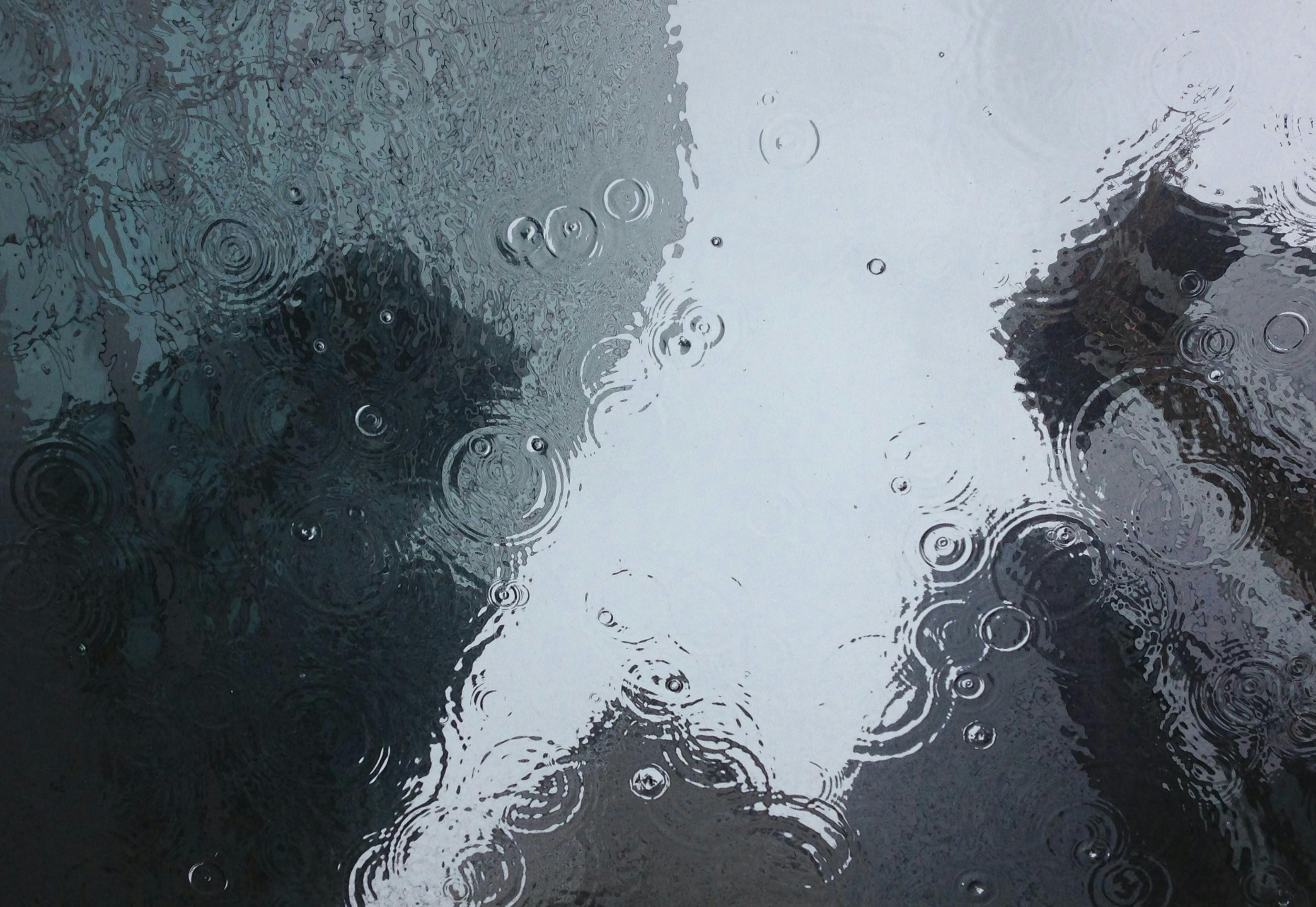Solar Panel Maintenance & Cleaning Guide
Learn essential solar panel maintenance tips with our detailed checklist to ensure your system's longevity and efficiency.

Keeping your solar panels in good shape starts with a solid solar panel maintenance checklist. Regular checks and cleaning ensure your panels work efficiently, save you money, and last longer.
This guide will provide you with a comprehensive checklist, covering essential tasks like routine inspections, cleaning, and monitoring system performance. By staying on top of solar panel maintenance, you can prevent potential issues and ensure your solar power system runs smoothly for years to come.
Key Takeaways:
Solar Panel Maintenance Checklist
Here's a handy checklist you can follow to ensure your solar panels stay in peak condition:
- Regular Visual Inspections: Check for dirt, debris, or shading issues that could affect performance.
- Cleaning: Safely remove dust, bird droppings, and other buildup that can reduce efficiency.
- Inspect Electrical Connections: Ensure all wiring and connections are secure and free from wear or corrosion.
- Monitor Energy Output: Regularly track your system’s performance to catch any drops in energy production.
- Check for Damage: Look for cracks, scratches, or any signs of damage on the panels.
- Inspect the Inverter: Ensure the inverter is functioning properly and free from faults.
- Verify Panel Alignment: Make sure panels are correctly aligned and angled for maximum sunlight exposure.
- Maintain the Mounting System: Tighten any loose bolts and check for corrosion or wear on the mounting hardware.
- Review Manufacturer Guidelines: Follow the manufacturer’s maintenance recommendations to keep your warranty intact.

How to Maintain Solar Panels
Proper maintenance of your solar panels is essential for ensuring they continue to operate efficiently and have a long lifespan. Below are key steps to help you maintain your solar panels effectively:
1. Regular Visual Inspections
Begin by inspecting your solar panels regularly, ideally every few months. During these inspections, look for:
- Visible Dirt and Debris: Check for any dirt, dust, or debris that may have accumulated on the surface of the panels, as these can reduce efficiency.
- Visible Damage: Look for any cracks, chips, or other damage on the panels. If you notice any issues, it’s important to contact a solar panel technician for repair or replacement as soon as possible.
- Wiring and Connections: Ensure that all wiring and connections are secure and free from corrosion. Loose or damaged wires can negatively affect your system's performance, so address any issues promptly.
- Inspect the Mounting System: Ensure that the mounting hardware is secure and free from corrosion. Loose mounts can cause panels to shift or become misaligned, reducing efficiency.
- Check for Shading Changes: Look for any new sources of shading, such as growing trees or newly built structures that might block sunlight from reaching the panels.
2. Cleaning Solar Panels
Keeping your solar panels clean is essential for maintaining their efficiency. Over time, dust, bird droppings, and other debris can accumulate on the surface, blocking sunlight and reducing energy production. Here’s how to clean them properly:
- Choose the Right Time: Clean your panels on a cool, cloudy day or early in the morning to avoid water evaporating quickly and leaving streaks.
- Use the Right Tools: A soft brush, sponge, or microfiber cloth combined with water is typically sufficient. For safety, clean your panels from the ground using an extension pole. Avoid using harsh chemicals or abrasive materials that could scratch the panels.
- Be Gentle: Apply gentle pressure while cleaning to avoid damaging the solar cells or protective glass.
- Rinse Thoroughly: After cleaning, rinse the panels with clean water to remove any soap residue or remaining dirt.
- Avoid Risky Conditions: If you can't safely reach your solar panels, consider hiring a professional cleaner to do this.
3. Checking Electrical Connections
Ensuring that your solar panel system’s electrical connections are secure and in good condition is crucial for maintaining system performance and safety. Here’s how to check them:
- Visual Inspection: Look for any visible signs of wear, corrosion, or damage on the wiring and connectors.
- Tighten Loose Connections: Gently tighten any loose wires or connectors, but be careful not to over-tighten, as this can cause damage.
- Inspect Junction Boxes: Open the junction boxes to check for moisture, which can cause corrosion, and ensure all connections inside are secure.
- Check for Proper Insulation: Ensure that all wiring is properly insulated to prevent short circuits or other electrical issues.
- Monitor for Fault Codes: If your inverter panel displays any fault codes, this could indicate an issue with the electrical connections that needs to be addressed immediately.
If you notice any issues during your inspection, it’s advisable to contact a professional solar installer or electrician to resolve the problems safely.
4. Monitoring Energy Output
Regularly monitoring your solar panel system’s energy output is crucial to ensure it’s performing efficiently.
- Use Monitoring Software: Most modern solar systems come with monitoring software or apps that track energy production in real time. Regularly check these readings to ensure they align with expected performance.
- Compare with Historical Data: Keep a log of your energy output and compare it with past data to identify any significant drops in production that could indicate a problem.
- Investigate Drops in Output: If you notice a sudden decrease in energy production, inspect your system for potential issues such as dirt accumulation, shading, or electrical problems.
- Check the Inverter Display: Your inverter often provides real-time data on energy production. If you notice any error messages or unusual readings, this could be a sign of a malfunction.
- Schedule Professional Inspections: Even if everything seems fine, it’s a good idea to have a professional check your system annually to ensure it’s operating at peak efficiency.

Why is Solar Panel Maintenance Important?
Regular solar panel maintenance is crucial for ensuring that your solar panels operate at their highest efficiency and for extending the lifespan of your system. Neglecting maintenance can lead to decreased energy production, costly repairs, and a shorter system lifespan.
Longevity and Efficiency
Your solar panels are a significant investment in clean energy, with the potential to last 25 years or more. Proper maintenance is essential to achieving this lifespan. Over time, dust, dirt, debris, and exposure to the elements can accumulate on your panels, reducing their ability to absorb sunlight. This decrease in sunlight absorption leads to lower energy output, which directly impacts the efficiency of your solar energy system.
Financial Consequences of Neglect
Neglecting solar panel maintenance doesn’t just reduce their lifespan; it also affects your finances. Dirty or poorly maintained panels can lose 15% to 35% of their efficiency, depending on environmental factors. This loss in efficiency translates to a significant reduction in energy production, meaning you won't fully benefit from your solar power system. In the long run, this can result in a substantial financial loss, as you could miss out on up to a third of the energy your panels are capable of producing.
Moreover, neglecting maintenance can lead to more severe issues, such as the need for costly repairs or even the premature replacement of your solar panels. Regular upkeep is key to avoiding these financial setbacks and ensuring your solar panels deliver maximum benefits throughout their lifespan.
Signs Your Solar Panels Need Cleaning
Regular cleaning is essential to keep your solar panels operating at peak efficiency. Here are some key signs that your panels may need cleaning:
Visible Dirt and Debris: If you notice a buildup of dust, bird droppings, leaves, or other debris on your panels, it’s time for a cleaning. These obstructions block sunlight and reduce energy production.
Decreased Energy Output: A noticeable drop in your system’s energy production, despite consistent weather conditions, can indicate that your panels are dirty and not absorbing as much sunlight as they should.
Water Stains or Pollen: Streaks from rainwater, especially in areas with hard water, and pollen buildup can form a layer on the panels that decreases their efficiency.
Shading from New Growth: If nearby trees or shrubs have grown and are casting shadows on your panels, this not only reduces efficiency but may also require trimming along with cleaning.
Seasonal Maintenance
In the UK, where weather varies with the seasons, seasonal maintenance for solar panels is important:
Spring and Summer: These seasons typically offer cleaner conditions, but after spring rains or summer storms, inspect your panels for debris that may have accumulated.
Autumn: With falling leaves and increased debris, it's crucial to regularly clear your panels to keep them operating efficiently.
Winter: Snow and frost can temporarily reduce panel efficiency. Gently clear snow with a soft broom or allow it to melt naturally to restore optimal performance.
Does Rain Clean Solar Panels?
Rain can indeed help by washing away dust and dirt that accumulates on your panels. However, the effectiveness of rain depends largely on the angle of your solar panels. Panels installed at an angle allow rainwater to run off, preventing water from pooling, which is more likely to happen with flat panels.
Recommended guide: Can you put solar panels on a flat roof?
If your panels are correctly angled, rain can do a remarkable job of keeping them clean. It's a free and environmentally friendly way to maintain their efficiency.
Post Storm Maintenance
While rain can help keep your panels clean, it’s not always enough, especially after storms or heavy winds. These conditions can leave debris like twigs or branches on your panels, blocking sunlight. After such weather, it’s wise to perform a visual inspection to remove debris and check for any damage to maintain optimal performance.
Safety Precautions When Cleaning Your Solar Panels
While maintaining your solar panels is essential, safety should always be a top priority. Here are some key safety measures and easy-to-follow guidelines for homeowners during maintenance:
- Safety Gear: Wear slip-resistant shoes, gloves, and safety glasses to protect yourself from dust and debris during cleaning.
- Switch Off and Disconnect: Always turn off your solar panel system and disconnect it from the grid before performing any maintenance to prevent electrical accidents.
- Stay Grounded: Clean panels from the ground using an extension pole whenever possible. Avoid climbing on the roof unless you are properly trained and equipped.
- Check for Obstructions: Look for overhead hazards like power lines or branches before accessing your panels and maintain a safe distance.
- Use Caution with Detergents: If using a mild detergent, avoid contact with your eyes or skin and follow safety instructions.
- Secure Tools: Fasten tools and equipment securely to prevent them from falling onto the panels or ground.
When to Hire a Professional
If your solar panels are difficult to access, located on a steep roof, or if you’re unsure about safely handling the cleaning process, it’s best to hire a professional. Professionals have the right tools and expertise to clean your panels safely and effectively, ensuring your system remains in optimal condition without risking your safety.
Solar Panel Warranties
Solar panel systems, just like most electronic products, come with warranties to ensure their performance and durability. There are typically three types of warranties associated with solar panel installations:
Performance Guarantee Warranty (25 Years): This warranty ensures your solar panels will maintain a certain level of performance for 25 years. For example, it guarantees that the panels will still produce at least 85% of their original capacity during this period.
Product Warranty (12 Years): Covers defects from manufacturing, ensuring your panels are free from flaws for about 12 years.
Workmanship Warranty (5 Years): Protects against issues related to the installation process, such as improperly placed roof tiles, with coverage typically lasting five years.
To avoid shoddy workmanship, we'd recommend giving the following guide a read: How to choose a solar panel installer - the advice in this guide should help you to pick a great installer and avoid ever having to use workmanship warranty.
Final Thoughts
Maintaining your solar panels is essential to ensuring they operate at peak efficiency and provide long-term benefits. By following our solar panel maintenance checklist, you can extend the lifespan of your solar energy system, maximise energy production, and avoid costly repairs. Proper care not only protects your investment but also enhances the environmental benefits of using renewable energy.
Ready to see what you can save?
Our solar calculator is 100% free to use. Enter your postcode below to get started.

Based on 400+ Trustpilot reviews






